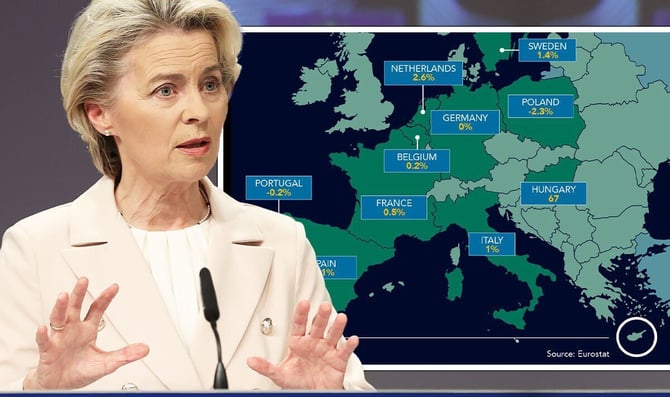Europe Slides Towards Recession as ECB Considers Next Steps

Europe’s economy is facing the strain of energy rationing, record inflation, and tighter monetary policy. With a round of purchasing managers’ indexes slated to arrive this week, analysts expect to see a contraction in private-sector output for a second month, pointing to signs that a recession in the Eurozone is now likely.
Germany, Europe’s largest economy, has been affected badly. Its large industrial base has suffered disproportionately from surging energy costs and a chronic shortage of supplies. Meanwhile, the country cannot rely on the same tourism boom from which countries in the Mediterranean region are benefiting.
When the European Central Bank (ECB) raised rates by half a point in July, it promised that “further normalization” measures would likely be the result of its September meeting.
Several of the world’s top central bankers are attending the Kansas City Fed’s annual Economic Policy Symposium in Jackson Hole, Wyoming. With Eurozone inflation having recently ticked up to just under 9%, it is expected that some central bankers will make their policy positions known at this meeting.
What does this mean for me?
Minutes from the ECB’s July meeting have given strong clues that investors should expect another 50-basis-point rate hike in September. Given widespread inflationary pressures, an increase of this size can be safely factored in.
The ECB is not alone as it plans more hikes. Monetary policy authorities in Israel, Iceland and South Korea are among those expected to hike rates in the coming month.
More News
.webp)
Japan’s Rate Shift Is Rippling Through Global Bond Markets
1 week ago

China’s Growth Engine Stalls as Consumers and Investors Pull Back
1 week ago

Egypt’s Recovery Gains Traction as Household Pressure Lingers
2 weeks ago

OECD Warns AI and Tariffs Will Test the Global Economy
3 weeks ago

Zero Tariffs, Higher Drug Bills as US and UK Reset Pharma Trade
3 weeks ago

Catastrophe Bonds Go Global as Climate Risk Meets Yield Hunting
1 month ago
.webp)
Canada Shields Steel and Lumber Industries From Tariffs
1 month ago

Trump Drops Selected Tariffs in Response to Inflation Pressures
1 month ago